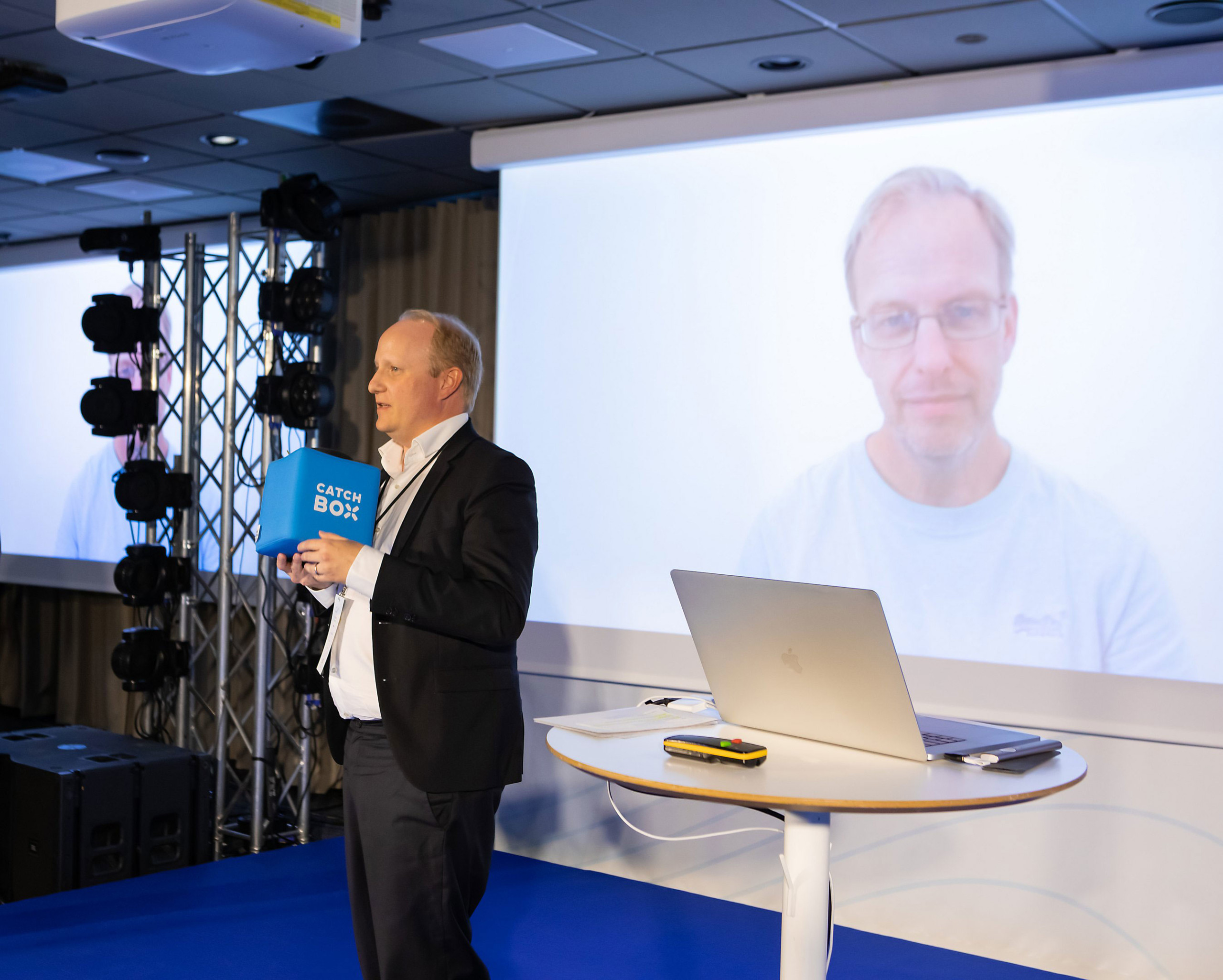The amount of data in healthcare laboratories is exploding. If we find a future-proof way of utilising the data, it has a tremendous potential to improve diagnostics, says Chief Medical Information Officer Patrik Georgii-Hemming from Karolinska University Hospital.
Good diagnostics is key to high-quality healthcare, but the amount of data is unmanageable. Therefore, we need a digital transformation!
This transformation must be centred around data, he stressed.
Medical decisions are based on data, so we need a data-centric approach.
Focus on data quality
Focusing on data sounds both wise and simple but tends to get lost in everyday IT work.
In IT departments we tend to concentrate on process automation. We must remember what the I in IT stands for, namely information.
Georgii-Hemming urged IT departments in healthcare and developers of software for the sector to always keep an eye on the data and the quality of them, rather than the processes.
Quality data are, he said, characterised by being:
Relevant
- Meeting the current and potential future needs of users
Accurate and reliable
- Correctly and consistently describing what it was designed to measure
Timely and punctual
- Collected within a reasonable agreed period and delivered on promised dates
Coherent and comparable
- Consistent over time and across providers, easily combined with other sources
Accessible and clear
- Easily obtainable and easily understandable.
By continuously focusing on quality data, Georgii-Hemming wants to give the clinicians the type of information they need: available, accurate and complete. To shorten the time from symptom to diagnosis, these data need to be in a format that is readable to both machines and humans.
Our job in IT is to support the clinicians with planning, collaborating, studying and acting on the information, they obtain.
A cure for “appliosclerosis”
Most organisations are suffering from appliosclerosis, Georgii-Hemming stated.
He pointed to the application-centric approach where behaviour becomes more important than data. Typical symptoms of appliosclerosis include data tied up in applications, big data conversion projects, data integration consuming 35%-65% of the IT budget and difficulties integrating external data with internal.
The cure is a data-centric approach. Here, data is an open resource that outlives any given application, which makes data integration much easier and nearly free, Georgii-Hemming explained.
However, the shift from an application or workflow-centric approach to data-based thinking does not happen, if we continue with business as usual, he noted.
The seven systems we have today do not do the job. We need disruption, he said, throwing the ball to Mylab, asking “are you ready for the challenge?”
Creating value by delivering data
Mylab is ready to catch the ball and build a data-centric architecture with its partners in Stockholm, says CEO Samuli Niiranen, who praises Georgii-Hemming’s strategic thinking. The focus on data corresponds with Mylab’s view on customer value creation, Niiranen stresses.
Functionally, the value our customers create for their customers is data and primarily of patient-specific nature. So, the core of Mylab’s value creation is to help produce and provide conduits for this data. Mylab has chosen the motto delivering data, delivering life to crystallise our mission.
Niiranen finds it important to thoroughly consider data flows and data dependencies in the context of a data-centric architecture for laboratory functions and diagnostics.
To a large extent, data doesn’t exist or evolve in separate siloes in our domain. This is, for example, related to the increasingly multi-disciplinary, integrated workflows in the laboratory and more broadly in diagnostics.
Now, it is time to listen to get a deeper understanding of the needs at Karolinska University Hospital, Niiranen said.
Then we’ll build a roadmap for a common future from this starting point leveraging the experience and expertise Mylab has gained in Finland from implementing the My+ solution for large university hospital laboratories and their evolving needs.

Mylab CEO Samuli Niiranen praised Georgii-Hemming’s strategic thinking. Karolinska’s focus on data corresponds with Mylab’s view on customer value creation, he pointed out. Georgii-Hemming presented his data-centric view on Mylab’s 35th Anniversary Seminar in early September 2022.
FACT BOX
Karolinska University Hospital in Stockholm, Sweden (2021 numbers)
- Percentage of Region Stockholm care assignment delivered: 102.1 percent
- Average number of beds: 1,086 (+11 percent from 2018)
- Number of patient visits (inpatient and outpatient): 1.4 million
- Number of PCR tests (performed/coordinated): 2.1 million
- Ongoing clinical studies: 1,300
- Net income: MSEK 740